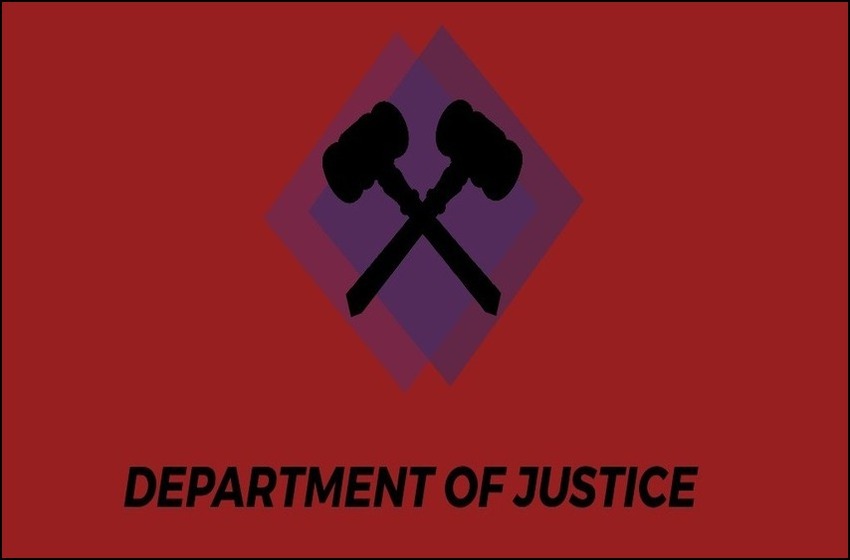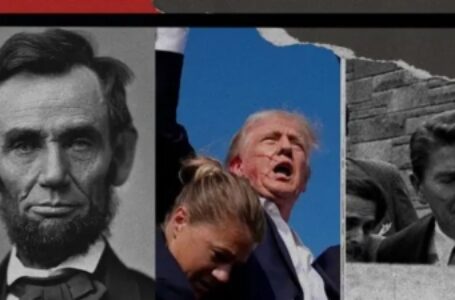‘Contrary to the facts’: DOJ says judge wrongly questioned ‘good faith’ handling of Mueller report

by Jerry Dunleav March 07, 2020
The Justice Department rebuffed a federal judge’s claim that Attorney General William Barr’s handling of special counsel Robert Mueller’s report was “misleading.”
In a Tuesday order, D.C. District Court Judge Reggie Walton second-guessed the redactions that appeared in Mueller’s 448-page report and demanded the Justice Department hand over an unredacted version so he could decide if more should be made public.
“The Court has grave concerns about the objectivity of the process that preceded the public release of the redacted version of the Mueller Report” and its “impacts on the Justice Department’s subsequent justifications” that the redactions were authorized under the Freedom of Information Act, the President George W. Bush appointee said.
DOJ spokeswoman Kerri Kupec responded on Friday, calling the court’s assertions “contrary to the facts.”
Recommended For You Morbid undertow as Sanders, 78, and Biden, 77, consider vice presidents
Morbid undertow as Sanders, 78, and Biden, 77, consider vice presidents
“The original redactions in the public report were made by Department attorneys, in consultation with senior members of Special Counsel Mueller’s team, prosecutors in the U.S. Attorney’s Offices, and members of the Intelligence Community,” Kupec said. “In response to FOIA requests, the entire report was then reviewed by career attorneys, including different career attorneys with expertise in FOIA cases — a process in which the Attorney General played no role. There is no basis to question the work or good faith of any of these career Department lawyers.”
The judge said he agreed with the Electronic Privacy Information Center and BuzzFeed, which sued for the full unredacted report under FOIA, that Barr “dubiously handled the public release” of Mueller’s report. Walton said Barr’s “lack of candor” called into question his “credibility” as he took issue with the March 2019 letters Barr wrote prior to the release of the Mueller report and an April 2019 letter and news conference the attorney general gave the morning the report was made public. The judge questioned whether Barr’s intent “was to create a one-sided narrative about the Mueller Report.”
Kupec said the Justice Department “stands by” the work of the DOJ officials who made the redaction decisions while defending Barr’s “efforts to provide as much transparency as possible in connection with the Special Counsel’s confidential report.”
Mueller delivered his report to the Justice Department on March 22, 2019, and Barr informed Congress that day he was reviewing it and might be able to advise them of Mueller’s “principal conclusions” that weekend.
Barr told Congress on March 24, 2019, that Mueller’s investigation “did not find that the Trump campaign or anyone associated with it conspired or coordinated with Russia in its efforts to influence the 2016 presidential election.” The attorney general said Mueller “did not draw a conclusion one way or the other as to whether the examined conduct constituted obstruction.” Barr, along with then-Deputy Attorney General Rod Rosenstein, determined there was insufficient evidence to establish that President Trump obstructed justice.
Mueller sent a letter on March 27, 2019, claiming Barr’s letter “did not fully capture the context, nature, and substance” of his investigation’s “work and conclusions.”
Barr followed up with another letter on March 29, 2019, stating some media and public figures “mischaracterized” his prior letter as a “summary” of Mueller’s report, emphasizing it “was not and did not purport to be an exhaustive recounting” of Mueller’s investigation.
“Thanks to the special counsel’s thorough investigation, we now know that the Russian operatives who perpetrated these schemes did not have the cooperation of President Trump,” the attorney general stated at an April news conference.
Mueller’s report noted his investigation “identified numerous links between the Russian government and the Trump campaign” but “did not establish that members of the Trump campaign conspired or coordinated with the Russian government.” On the issue of obstruction of justice, Mueller said he “determined not to apply an approach that could potentially result in a judgment that the president committed crimes” but that “while this report does not conclude that the president committed a crime, it also does not exonerate him.”
During a May news conference after the report’s release, Mueller offered some cover to Barr in explaining what transpired behind the scenes during the Justice Department’s redaction process.
“At one point in time, I requested that certain portions of the report be released,” Mueller said. “The attorney general preferred to make the entire report public all at once. We appreciate that the attorney general made the report largely public, and I certainly do not question the attorney general’s good faith in that decision.”
That same day, the Justice Department and the Office of Special Counsel put on a united front to clarify the issue of whether Trump would have been charged if not for the Office of Legal Counsel opinion stopping sitting presidents from being indicted.
“The attorney general has previously stated that the special counsel repeatedly affirmed that he was not saying that, but for the OLC opinion, he would have found the president obstructed justice. The special counsel’s report and his statement today made clear that the office concluded it would not reach a determination — one way or the other — about whether the president committed a crime. There is no conflict between these statements,” the joint statement said.
















